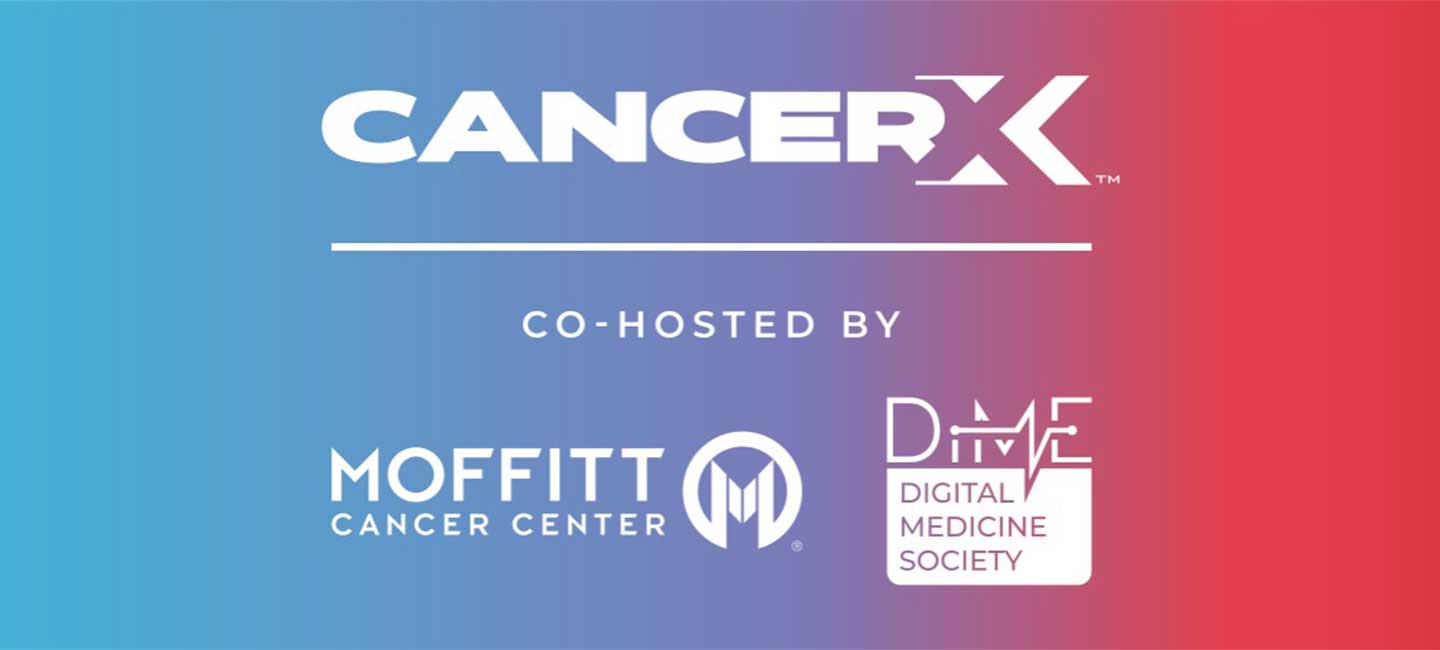CancerX Partnership Tackles Disparities and Financial Toxicity in Cancer Care and Research
Cancer takes a toll on patients and families physically, emotionally and financially. Certain groups also bear a disproportionate burden from cancer due to social, environmental and economic disadvantages. As part of a new public-private partnership called CancerX, Moffitt Cancer Center and the Digital Medicine Society (DiMe) have set out to rapidly accelerate the pace of cancer innovation in the U.S., with an initial focus on using digital innovation to reduce disparities and financial toxicity in cancer care and research.
Launched in March 2023, CancerX is part of the White House Cancer Moonshot initiative, which aims to cut the death rate from cancer by 50% over the next 25 years and improve the experience of people and families living with and surviving cancer. CancerX is a national accelerator to boost innovation in the fight against cancer. It is co-hosted by Moffitt and DiMe, alongside the Office of the National Coordinator for Health Information Technology and Office of the Assistant Secretary for Health.
“CancerX seeks to harness the power of digital innovation in oncology, which has not kept pace with other therapeutic areas,” said Edmondo Robinson, MD, chief digital officer at Moffitt.
He points to an example of the ease of booking a traditional doctor’s appointment online or through an app. With cancer care being so complex, requiring multiple appointments with different providers often on the same day, scheduling is not that simple.
“Innovative solutions that have made strides in other areas of health care often fall short when it comes to tackling the unique complexities of cancer care,” he explained.
The CancerX initiative brings together a diverse group of stakeholders to change that. The initiative is open to all organizations and experts working in the field who want to collaborate on digital innovations in cancer care and prevention. More than 90 organizations joined the effort as founding members, including the American Cancer Society, the Leukemia & Lymphoma Society, a range of cancer centers from across the country, and well-known leaders in technology and health care.
The first project, which kicked off in March 2023, convened a multistakeholder group of experts to assess, quantify and enhance the impact of digital solutions on cancer care cost, access and outcomes.
“Financial toxicity is an important topic for cancer,” Robinson said. He notes that people with cancer are 2.5 times more likely to declare bankruptcy, and 42% of patients lose their life savings within two years of being diagnosed with cancer.
“People are fighting for their life. They’re fighting for their home. They’re fighting for their future. They’re fighting for their family,” Robinson said. “And in many instances, people are experiencing avoidable disparities in access to specialized cancer care and clinical outcomes following treatment.”
The first CancerX project began by identifying these types of challenges and gaps in equity and defining what needs to change. In November 2023, the project moved into the next phase: launching an accelerator cohort where experts aim to develop approaches to address the challenges. Startup participants benefit from valuable mentorship, comprehensive training and direct access to key players in the health care industry, including providers, payers and pharmaceutical companies. This collaborative environment enables startups to develop, test and implement their cancer-focused innovation on a larger scale.
Ultimately, innovative solutions will be implemented to demonstrate value and sustainability for broad adoption. The first demonstration project is expected to begin in 2024.
The CancerX collaboration will benefit patients, caregivers and health care providers across the country and around the world.
“By harnessing our diverse strengths and expertise, we have the ability to impact the lives of every person, caregiver and researcher working on a cancer journey,” Robinson said. “We are honored to co-host CancerX and pave the way to effectively leveraging digital innovation in the fight against cancer and reducing incidence, burden and disparities in cancer care.”



